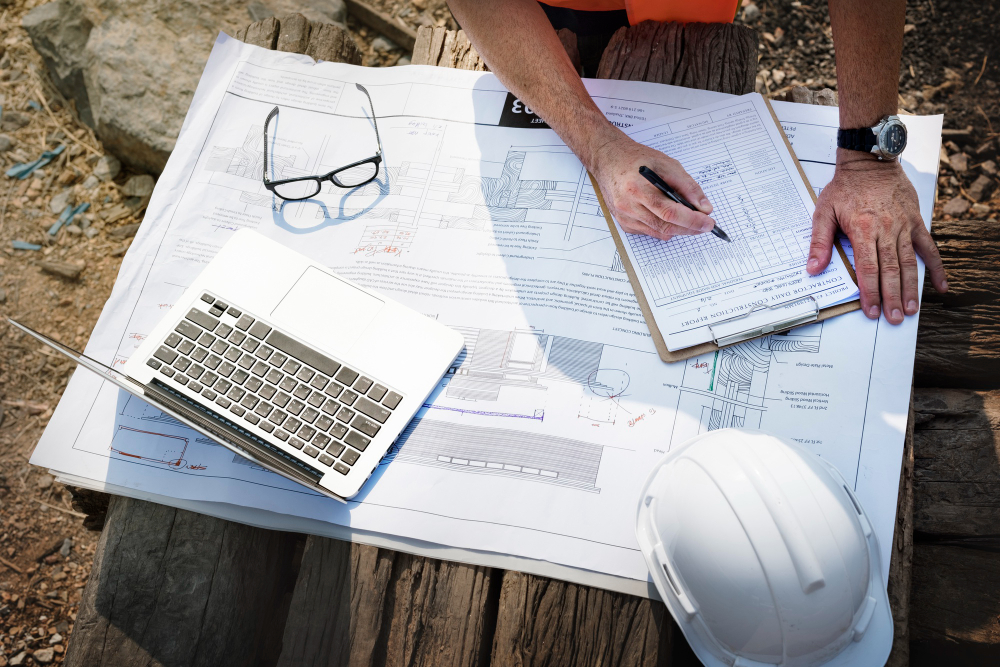🏗️ Building Permit: What You Need to Know in 2025
🏠 What is a building permit?
A building permit is an administrative authorization required for certain construction, extension, or modification works on a building. It is issued by the city hall (mairie) of the municipality where the land is located.
📏 When is a building permit required?
In 2025, a building permit is mandatory for:
- Any new construction with a floor area or footprint over 20 m²
- An extension of an existing house exceeding 20 m² (or 40 m² in certain urban zones with a local urban plan – PLU)
- A change in the use of a building involving changes to the façade or structure
- Construction of swimming pools over 100 m²
🛠️ For projects below these thresholds, a prior declaration of works (déclaration préalable de travaux) may be sufficient.
🧾 What documents are required?
The building permit application file must include:
📥 The application can be submitted in paper format or online via the town hall's website.
- CERFA form No. 13406*12 (for single-family homes)
- Location plan of the land
- Site plan of the construction
- Cross-section plan of the land and building
- Descriptive report of the project
- Photos of the site and surrounding area
- Specific documents if located in a protected or listed zone
📥 The application can be submitted in paper format or online via the town hall's website.
🧑🎨 Is an architect required?
An architect is mandatory if:
- The total floor area after construction exceeds 150 m²
- The building is for professional or public use
- The land is in a listed or protected zone
⏳ Processing times
Once submitted, the town hall has:
This period may be extended if:
- 2 months to process the application (for a single-family home)
- 3 months for other types of projects
This period may be extended if:
- The land is in a listed area
- Approval from the Architect of the Bâtiments de France is required
- Documents are missing from the initial file
📬 If no response is received within the set timeframe: tacit approval applies (except in certain cases).
🛑 What to do in case of refusal?
Common reasons for refusal:
✅ Your options:
- Non-compliance with the Local Urban Plan (PLU)
- Incorrect height, color, or materials
- Improper positioning of the building on the land
- Access, sanitation, or safety issues
✅ Your options:
- Modify and resubmit the application
- File an informal appeal (recours gracieux) or a legal appeal (recours contentieux)
🧩 Building Permit or Prior Declaration: How to Choose?
📍 Special Cases (Protected Zones)
In ABF zones (Architectes des Bâtiments de France) or protected sectors:
- Stricter regulations apply (materials, colors)
- The review period can extend up to 6 months
- The opinion of the Architectes des Bâtiments de France is mandatory and may be binding
📌 Good to Know in 2025
- Online submission is now standard (via service-public.fr)
- Some municipalities require an operational urban planning certificate before issuing the permit
- RE2020 standards must be included in the design: orientation, insulation, use of bio-based materials
✅ Conclusion
A building permit is an essential step for any serious construction project. In 2025, the process is more streamlined, but regulations remain strict. A well-prepared project that complies with the local PLU (Local Urban Plan) helps avoid unpleasant surprises and saves valuable time. Don’t hesitate to seek professional guidance to ensure a smooth experience.
📍 We operate throughout the French Riviera, especially in:
Nice, Cannes, Antibes, Grasse, Mougins, Saint-Tropez, Fréjus, Menton, Beaulieu-sur-Mer, Saint-Jean-Cap-Ferrat, and surrounding areas.
📞 +33 7 45 44 61 40
🌐 www.totalconstruction.fr
📍 We operate throughout the French Riviera, especially in:
Nice, Cannes, Antibes, Grasse, Mougins, Saint-Tropez, Fréjus, Menton, Beaulieu-sur-Mer, Saint-Jean-Cap-Ferrat, and surrounding areas.
📞 +33 7 45 44 61 40
🌐 www.totalconstruction.fr

